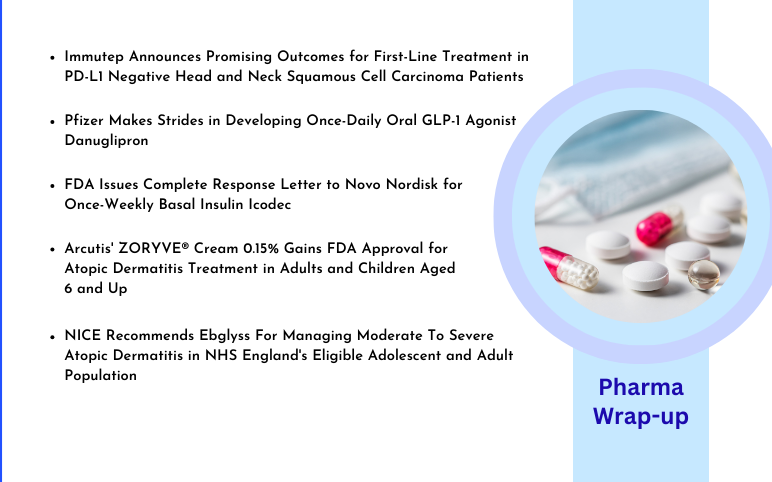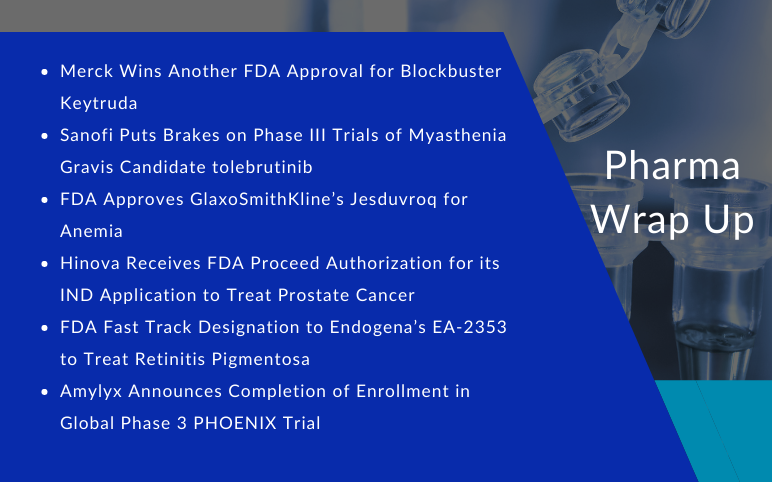Keytruda
Jun 13, 2025
Navigating the Loss of Exclusivity: Big Pharma’s New Playbook
The Patent Cliff Returns: Can Big Pharma Innovate Fast Enough to Stay on Top? For decades, blockbuster drugs have fueled the pharmaceutical industry’s golden age. But as the 2020s unfold, a familiar threat is resurfacing with unprecedented intensity: the Loss of Exclusivity (LOE). With patents on multibillion-do...
Read More...
May 09, 2025
ADCs in Lung Cancer Treatment: ENHERTU’s Rise, HER3 & TROP-2 Challenges, and What’s Next in the Pipeline
Lung cancer remains the leading cause of cancer-related death in the United States; approximately 85% of lung cancers are non-small cell lung cancer (NSCLC), with ~530K cases in the 7MM. The main subtypes of NSCLC are adenocarcinoma (~57%), squamous cell carcinoma (~26%), and large cell carcinoma (~2%). Despite adv...
Read More...
Nov 29, 2024
Novel Mutation-Targeting Therapies in the Horizon to Relieve the Global Healthcare Burden NSCLC Poses
Lung cancer, to date, remains the leading cause of death worldwide, however, the epidemiological analysis depicts varying NSCLC incidence all over the world. In 2022, there were an estimated 20 million new cancer cases and 9.7 million cancer-related deaths. The number of people living for at least five years after ...
Read More...
Sep 23, 2024
Roche’s TECENTRIQ HYBREZA: Setting New Standards as the First Subcutaneous Anti-PD-(L)1 Drug
Better late than never for FDA approval of the first subcutaneous PD-L1 inhibitor—Roche’s TECENTRIQ HYBREZA—after manufacturing delays disrupted the company’s initial launch plans last year. The FDA was originally set to decide on TECENTRIQ’s under-the-skin formulation in September, but Roche’s delivery technolo...
Read More...
Jul 16, 2024
Immutep’ First-Line Treatment Positive Outcomes; Pfizer’s Once-Daily Oral GLP-1 Agonist Danuglipron; FDA Issues Complete Response Letter to Novo Nordisk; Arcutis’ ZORYVE® Cream 0.15% FDA Approval; NICE Recommends Ebglyss For Moderate To Severe Atopic Dermatitis
Immutep Announces Promising Outcomes for First-Line Treatment in PD-L1 Negative Head and Neck Squamous Cell Carcinoma Patients Immutep Limited announced positive results from Cohort B of the TACTI-003 (KEYNOTE-PNC-34) Phase IIb trial, evaluating eftilagimod alfa (efti) combined with MSD’s anti-PD-1 therapy KEYTR...
Read More...
Jun 14, 2024
OPDIVO vs. KEYTRUDA: The Battle for Japan’s PD-1 Inhibitor Market Dominance
Bristol Myers Squibb’s PD-1 inhibitor, OPDIVO, has deep roots in Japan. In July 2014, MHLW approved OPDIVO to treat melanoma, marking it the first approved PD-1 inhibitor globally. About two years later, KEYTRUDA gained approval in Japan for the same indications (melanoma and NSCLC). This set the stage for fierce c...
Read More...
Jun 03, 2024
Rapid Global Expansion of Chinese PD-1/PD-L1 Key Players
Immune checkpoint inhibitors (ICIs) are currently among the most widely used treatments for cancer. Chinese pharmaceutical companies have been making significant strides in developing PD-1 and PD-L1 inhibitors, used to treat various cancers. Several of these companies are now entering or planning to enter the US an...
Read More...
May 31, 2024
The Journey of PD-(L)1 Inhibitors: Milestones and Breakthroughs
The advent of PD-(L)1 inhibitors marks a monumental shift in the landscape of cancer treatment. These agents have redefined the therapeutic approach to several malignancies, offering hope where traditional therapies often fell short. PD-(L)1 inhibitors are a class of drugs that block the interaction between the pro...
Read More...
Nov 27, 2023
Another Feather in the Cap for Xtandi and Keytruda — The Two Main Cancer Drugs
The FDA has approved label extensions for two of the most crucial cancer medications globally—Merck’s Keytruda and Pfizer and Astellas’ Xtandi. Keytruda’s expanded indication now includes stomach cancer, permitting its usage alongside chemotherapy for first-line treatment in patients with locally advanced unresecta...
Read More...
Feb 07, 2023
Merck’s Keytruda Wins Another FDA Approval; Sanofi Pauses Trial of Myasthenia Gravis Drug, tolebrutinib; FDA Approves GlaxoSmithKline’s Jesduvroq; FDA IND Application Clearance for Hinova’s HP518; FDA Fast Track Designation to Endogena’s EA-2353; Amylyx Updates on Global Phase 3 PHOENIX Trial
Merck Wins Another FDA Approval for Blockbuster Keytruda Merck & Co arrived just two months after GSK celebrated a positive phase III result with its checkpoint inhibitor Jemperli as a first-line therapy for endometrial cancer. Keytruda (pembrolizumab) from Merck improved progression-free survival (PFS) vers...
Read More...










-Agonist.png)

